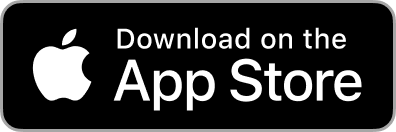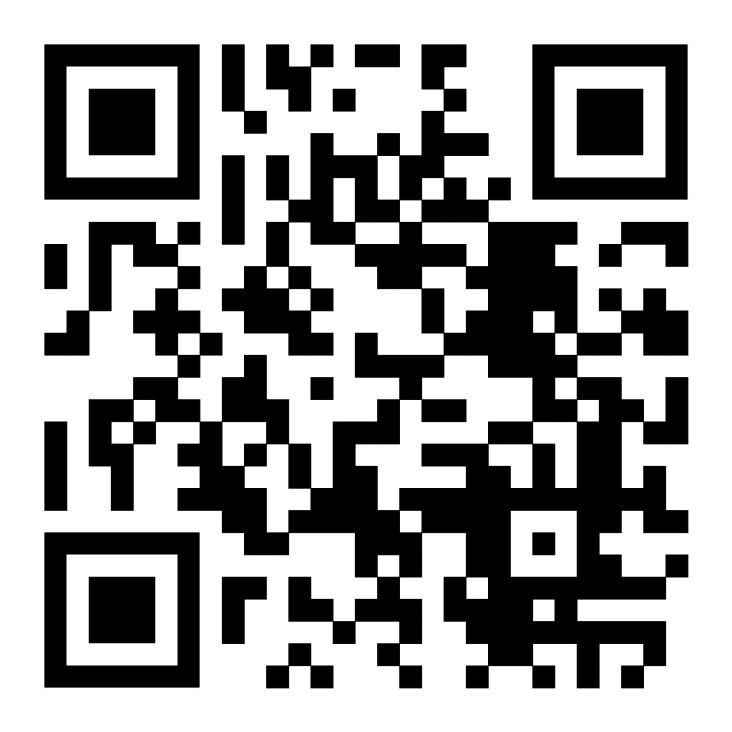Savings accounts are designed to help people safely store money that isn’t needed immediately and use it for certain things while earning a consistent interest rate. It typically involves keeping money secure at a bank or other financial institution and then keeping easy access to the capital when needed.
Many financial institutions have been forced to be more innovative with their saving schemes to meet the various saving needs of Nigerians. There are currently several savings accounts for children and students, daily requirements, emergencies, and short-term and long-term purposes. These provisions have made savings accounts a notable bank account in Nigeria, with over 120 million savings account holders as of 2021.
How Do Savings Accounts Work?
The savings accounts are relatively simple to comprehend and use for a saver. It would help if you had little trouble making deposits into and withdrawals from your savings account, depending on the account you choose. In Nigeria, a regular savings account typically offers a range of interest rates. Interest rates at financial institutions are always subject to change.
For banks and other financial institutions, savings accounts can serve as a significant source of funding. Then put money from depositors into various financial instruments, ranging from low-risk to high-risk investments, and they pay out a portion of the profits as interest to the savers.
Types Of Savings Accounts In Nigeria
In Nigeria, there are various kinds of savings accounts with multiple uses. Here, we’ll concentrate on the important ones and how they’re organised.
1. Individual Savings Account
This account is often referred to as the standard savings account. It is the most typical form of account that many Nigerians utilise; it is quite simple and is used for deposits and withdrawals. Except for personal information and identity documents, opening an individual savings account rarely has further requirements. There may not be a minimum balance requirement to start an account at all banks, but there may be restrictions on how much money may be withdrawn, how many transactions can be made each day, and other factors.
Savings account deposits over time earn a fixed interest rate. Savings plans are frequently locked for some time, during which the owner cannot access the account, for some financial technology companies like Mintyn Bank. The capital generates interest during this time, which is due on the maturity date.
2. Joint Savings Account
For various reasons, including joint control of funds, openness, accessibility, etc., mutual savings accounts are owned by at least two people as opposed to savings and current accounts managed by a single person. In most situations, intended couples, married couples, associations, cooperative societies, and other reasons are the owners of joint accounts.
Opening a joint bank account is essentially identical to opening an individual account. The only significant distinction is that during the account creation procedure, all persons with access to the arrangement must produce their KYC documents. There are several ways to manage a joint savings account, so it’s crucial to comprehend and concur with them.
Owning a joint account has become simpler, safer, and more accessible thanks to fintech companies like Mintyn Bank. You and your partner can save together as a pair, and there is also a larger savings circle for a group of people. The fact that no one else has ever had control over your money is a beautiful thing.
3. Emergency Funds
Emergency funds are sums of money safely stored in case of unanticipated events. These conditions might include a few unforeseen occurrences like an unexpected job loss, a big home or car repair, an illness, a pandemic, or a major national catastrophe. It’s crucial to make saving money during times of need a habit.
You might open an account designated explicitly for this reason or open an emergency savings account designed to motivate you to set aside money in case of an emergency after examining your income and outgoings.
What Is The Difference Between Traditional Savings Account And Online Savings Accounts?
1. It can take a while to open a traditional savings account. Your account won’t be operational and available for use right away; it will take some time to process the necessary papers, visit any bank branch, and bring the required documentation, WHILE account opening can be quick and straightforward in an online savings account. You’ll have less paperwork to deal with, all the information is submitted digitally, and your account will be activated and usable soon.
2. Even while there are applications and other online activities associated with traditional savings accounts, they typically aren’t as reliable as online banking. Apps supplement their primary service. Still, since online savings accounts solely operate online, they focus on providing a seamless user experience across all of their platforms so that the consumer can take advantage of all the advantages with few problems.
3. Interest rates are lower in traditional banks, and they could also impose fees for withdrawals, maintenance, etc. Still, higher interest rates and little to no monthly payments are common characteristics of online banks.
How To Open Savings Account In Nigeria
It has never been simpler to open a savings account in Nigeria. You can open a savings account without physically visiting a financial facility.
To start a savings account, all you need to do is go to the bank branch or website of your choosing, choose the type of account you want (savings), enter all the required information, agree to the terms, print, sign, and mail the paperwork, and deposit money into your account. Your application will be examined by a bank representative, who will soon provide you with an account number.
How To Make Withdrawals And Deposits From Online Savings Accounts
1. Transfers From Bank Accounts
Money from your traditional bank account can be effortlessly transferred to an internet savings account. The method is straightforward to follow. Account numbers and other information are available through online savings accounts in Nigeria and can be used to accept payments from other banks. This simplifies receiving money through transfers from accounts at different banks.
Friends may also make transfers to you; they are not required solely from your bank account.
2. Direct ATM Top-Ups
The best course of action for you might then be to fund your savings account directly through ATM top-ups. You must upload your ATM card information, including your card name, number, expiration date, and CVV, to access this. Then, for security reasons, you’ll receive an authentication code via your phone number or email address.
Following completion, you will be able to make new deposits into your online account using your ATM card and your budget. Additionally, this permits automatic deposits into some savings accounts.
3. USSD Services
Users whose phone numbers are registered with any of the mobile network operators (MTN, GLO, Airtel, and 9Mobile) and correctly maintained with the Bank are eligible for USSD (Unstructured Supplementary Service Data) services. A particular string of digits must be used to start a deposit or withdrawal from your account.
Both online and offline banks use this service, which can be helpful when there isn’t internet connectivity in particular circumstances.
If your account information is ever compromised, it’s always a good idea to use two-factor authentication to secure withdrawals from your account.
When Should You Use A Savings Account In Nigeria?
1. One unforeseeable condition that consistently tops the list is health. It’s crucial to save with your health in mind. Make emergency plans and stay one step ahead of life.
2. Saving for the future is entirely believable. You can then live your life with a clear strategy for the future. It is worthwhile.
3. Savings accounts can be used to amass funds for house planning. It would help if you didn’t start debating whether renting or buying a property is preferable until you’ve collected enough savings.
4. You should avoid certain negative financial habits since they cause much harm. You may overcome these tendencies and take greater control of your finances by constantly saving.
What You Need To Open Savings Account Online
1. Your personal information: Your full name, date of birth, a government-issued ID card, Bank Verification Number (BVN), and passport photograph.
2. Your contact information: here, you will need to provide your phone number, email address, and proof of your address.
3. Your Next-of-Kin information: you will need your next-of-kin’s name, phone number, email address, and type of relationship with them.
Benefits Of Having A Savings Account In Nigeria
1. Access And Availability
Unlike long-term investment accounts, savings accounts are simple to open and allow unlimited withdrawals and deposits (within federal limits) via ATMs or 24-hour online access. You may link your savings account to other accounts, including a checking account, at many institutions, which can help you avoid expensive overdraft fees.
2. Protection
According to the NDIC Act 2006, savings accounts at banks that are members of the NDIC (Nigeria Deposit Insurance Corporation) are guaranteed to be paid out of deposits up to the maximum insured sum (N500,000.00 to a depositor in universal banks and N200,000.00 to a depositor in MFBs and PMIs) in the event of the failure of a participating financial institution.
3. Automated Bill Payments
To help you avoid late fees or missing payments, several financial institutions allow invoices to be paid automatically out of a savings account without being subject to withdrawal and transfer restrictions.
4. Low-Startup Requirements
In Nigeria, several savings accounts may be created with simply N0.00 as the initial balance. For instance, no minimum deposit is needed to open a UBA savings account. You can open a savings account with N0.00 at Zenith Bank, another financial institution.
Challenges Of Having A Savings Account In Nigeria
1. Minimum Balance Requirements
A minimum balance requirement or monthly maintenance fees are standard for savings accounts. If your savings account doesn’t maintain the required balance, the bank will take money out of it in the form of fees, which will offset any interest you would have otherwise received.
2. Flexible Rates
Interest rates on savings accounts are flexible, so financial institutions can set and alter interest rates as they see fit. The rates on high-interest savings accounts will generally follow changes in the federal rate.
3. Federal Withdrawal Limits
If you take out more money than the federal limits allow, the banks will charge you a fee, and if you keep doing so more than six times each month, they may switch your account from a savings account to a checking account.
4. Inflation
If the interest rate on your savings account is not competitive, inflation may be eating away at the value of the interest you have earned, leaving you with a balance that will be worth less in future dollars than it is now.
5. Compounded Interest
Most traditional banks and credit unions compound the interest earned on monthly or yearly savings accounts. This means that especially when compared to other investment alternatives, the full potential of your money is not always fulfilled.
Conclusion
A savings account is typically designed for those with low incomes. It is a bank account at a retail bank with the restrictions that only a certain number of withdrawals are allowed, and it disallows the use of check services. It does enable overdrawing and has few transfer options. People use savings accounts for various reasons, one of which is to save extra money in a convenient and safe location.








